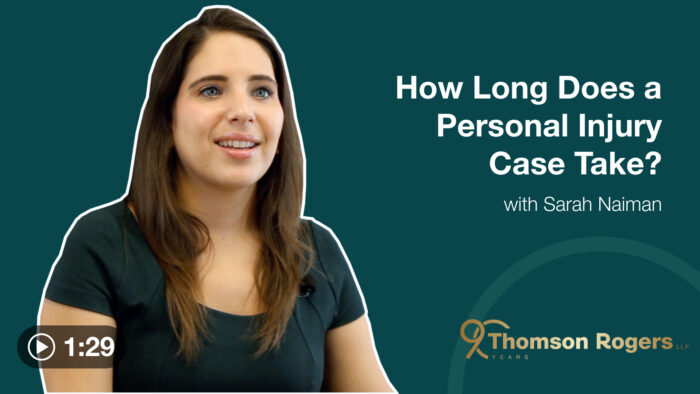HOANG V. PERSONAL INSURANCE COMPANY: INSURANCE COMPANY PUNISHED FOR DENYING TREATMENT FOR FUTURE RATHER THAN CURRENT NEEDS OF A BRAIN INJURED CHILD.
Author(s): Robert M. Ben*
May 5, 2014
Although traumatically brain injured children can sometimes make a remarkable recovery initially, they often go on to develop significant problems as their brain matures through adolescence and into young adulthood. These children may require costly treatment or rehabilitation services that are aimed at preventing or mitigating anticipated future problems as opposed to their current needs. What happens when an insurance company denies much needed benefits to such children on the basis that they do not require the proposed treatment now? How can insurers be deterred from this type of conduct?
The case of six-year-old Christopher, which I wrote about in an earlier issue of the Accident Benefits Reporter (see: Thomson Rogers, Accident Benefit Reporter Updater, Issue 11: Hoang v. Personal Insurance Company: An Insurer Must Remain Open to Additional Information as it Becomes Available), provides some guidance. Young Christopher suffered a frontal lobe brain injury after being struck by a car. He made great strides in his recovery with the assistance of a multi-disciplinary rehabilitation team. Outwardly, he appeared to be doing very well. He was able to return to school. He got good grades. However, he continued to suffer from brain-injury related cognitive and behavioural deficits, including: difficulties with dual attention tasks such as listening and writing simultaneously; slowed mental processing; persistent behavioural difficulties with aggression and frustration; fatigue; and, anxiety.
Despite Christopher’s satisfactory scholastic functioning, his paediatric neurologist considered him to be at very high risk for emerging deficits in frontal lobe functioning during his adolescence.
Christopher’s rehabilitation team recommended that he attend a specialized private school equipped to work with traumatically brain injured children, so that he could get individualized support and sustain his academic success into the future and improve his socialization skills.
The goal was to prevent or mitigate anticipated future problems.
Christopher turned to his insurance company to pay for a rehabilitation benefit for the cost of the specialized school, which he could not otherwise afford. The insurance company refused, pointing to the fact that Christopher was getting good grades in public school and, therefore, there was no present need for him to attend a private school. Christopher took the insurance company to arbitration where he prevailed. The insurance company was ordered to pay for the cost of tuition even though Christopher was never actually able to attend the specialized school. It was enough for Christopher to demonstrate that the rehabilitation benefit was reasonably required. The arbitrator also made a significant monetary Special Award against the insurance company as punishment for unreasonably denying the benefit.
Despite two failed appeals at the Financial Services Commission, the insurance company brought the matter to the Divisional Court for a further form of appeal called judicial review. A three judge panel unanimously upheld the arbitrator’s award, finding that the insurance company’s reliance on past and current academic successes and socialization disregarded the fact that the specialized school claim was rooted in a concern that Christopher’s future was at risk. The court rendered a lengthy written decision (see: Personal Insurance Company v. Hoang, 2014 ONSC 81 (CanLII)) confirming a number of principles that will be helpful for dealing with insurance companies in similar cases:
- The insurance company must pay a benefit if the treatment or rehabilitation measure is reasonably necessary and the amount of the associated expenditure can be determined with certainty. The injured person does not have to actually receive the treatment or rehabilitation or incur an expense in order to establish entitlement. Otherwise, insurance companies might be encouraged to deny benefits for needed services and then later argue the services could no longer benefit the injured person and should not be paid.
- A treatment or rehabilitation measure can be related to future rather than current needs. The fact that children are more vulnerable than adults when it comes to timely provision of necessary services cannot be in dispute. Children’s needs change as they move from childhood to adolescence to adulthood. They will never pass through those phases again.
- When an insurance company unreasonably withholds or denies benefits, a Special Award can be made to punish the misconduct and to deter the insurance company from similar misconduct in the future. The award should be proportionate to, among other factors, the vulnerability of the injured person and the harm or potential harm directed at the injured person.
Robert M. Ben argued Christopher’s case at the 6-day arbitration, two FSCO appeals and at the judicial review at the Divisional Court.
View PDF version: Accident Benefit Reporter | Volume 15, Issue 1 | May 2014
Share this






